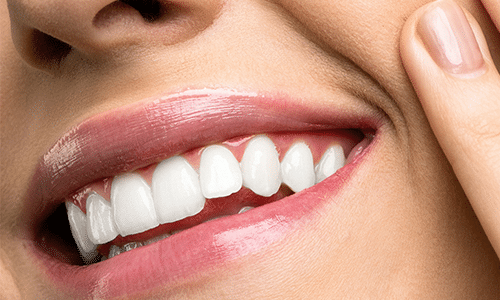Teeth whitening has become very popular with the treatment being available to all and not just celebrities. Dental whitening is an effective and safe procedure to combat discoloured teeth that can often have a negative impact on a person’s mental health. Habits such as smoking and eating and drinking dark coloured, acid foods and drinks can cause regular discolouring.
At Cheslyn Hay Dental Practice we provide our patients with bespoke tailor made at home kits. But unfortunately, there are many myths and false information out there on what to do and not do around teeth whitening and the best practise around this.
1. Teeth whitening can harm enamel
This is simply not true. Enamel is the hardest tissue in the human body, it is the outer covering of the tooth. Although, this is the outer layer the colouring is actually on the layer below known as dentin. For teeth whitening products to work they are absorbed through the enamel tubules reaching the dentin, which then undergoes the dental whitening process.
2. Sensitivity worsens
Whitening often causes temporary sensitivity for up to 48 hours due to dehydration. As the enamel tubules are opened and activated, they are then left open following treatment known as tooth dehydration. For these 36 hours it is advised to not have food and drink that contain colour or are particularly sweet or salty. Also, to avoid extreme temperature differences to avoid any irritation to nerve tissue. Via saliva, the tubules and therefore the teeth are organically rehydrated and will return to their normal state.
3. Whitening toothpaste, charcoal, and oil are just as effective
Teeth stains are characterised as intrinsic (inside the tooth) or extrinsic (on the surface). Whitening toothpastes and charcoal work by removing the surface stains. Different ingredients within the products work better. Silica, baking soda and activated charcoal, abrasively scrubs, and removes the stain whereas hydrogen peroxide bleaches and can remove and whiten but again only extrinsically. Oil on the other hand is believed to improve oral health, however, hasn’t been proven to whiten teeth in any studies. Unlike teeth whitening completed by a professional dentist, home remedies can actually damage the enamel of your teeth.
4. Whitening treatment lasts forever
Teeth whitening is not permanent. It can last from a few months to up to 3 years depending on you as a person and the habits and steps you take to protect your teeth. Smoking, drinking dark coloured drinks, and eating acidic foods can all have an impact on your teeth.
5. False teeth can be whitened
Dentures, crowns, fillings, or veneers cannot be whitened. If you want to whiten your teeth you are best doing this prior to any further work to change your smile. Teeth whitening dentists are then able to match the material used for new teeth with existing whitened teeth.
If you have further questions about Invisalign treatment or would like to book an appointment to see an orthodontist, then please get in touch with the Cheslyn Hay Dental Practice team on 01922 414 372.

